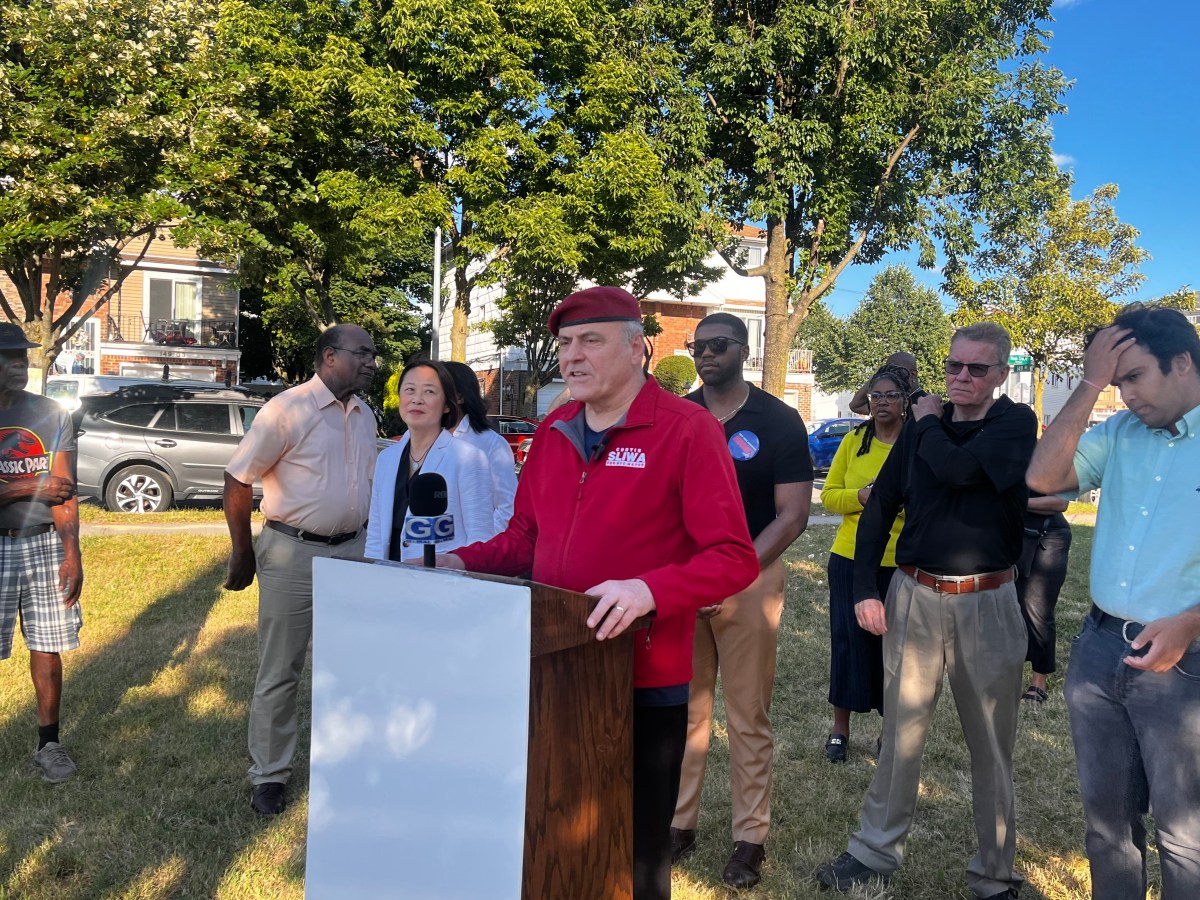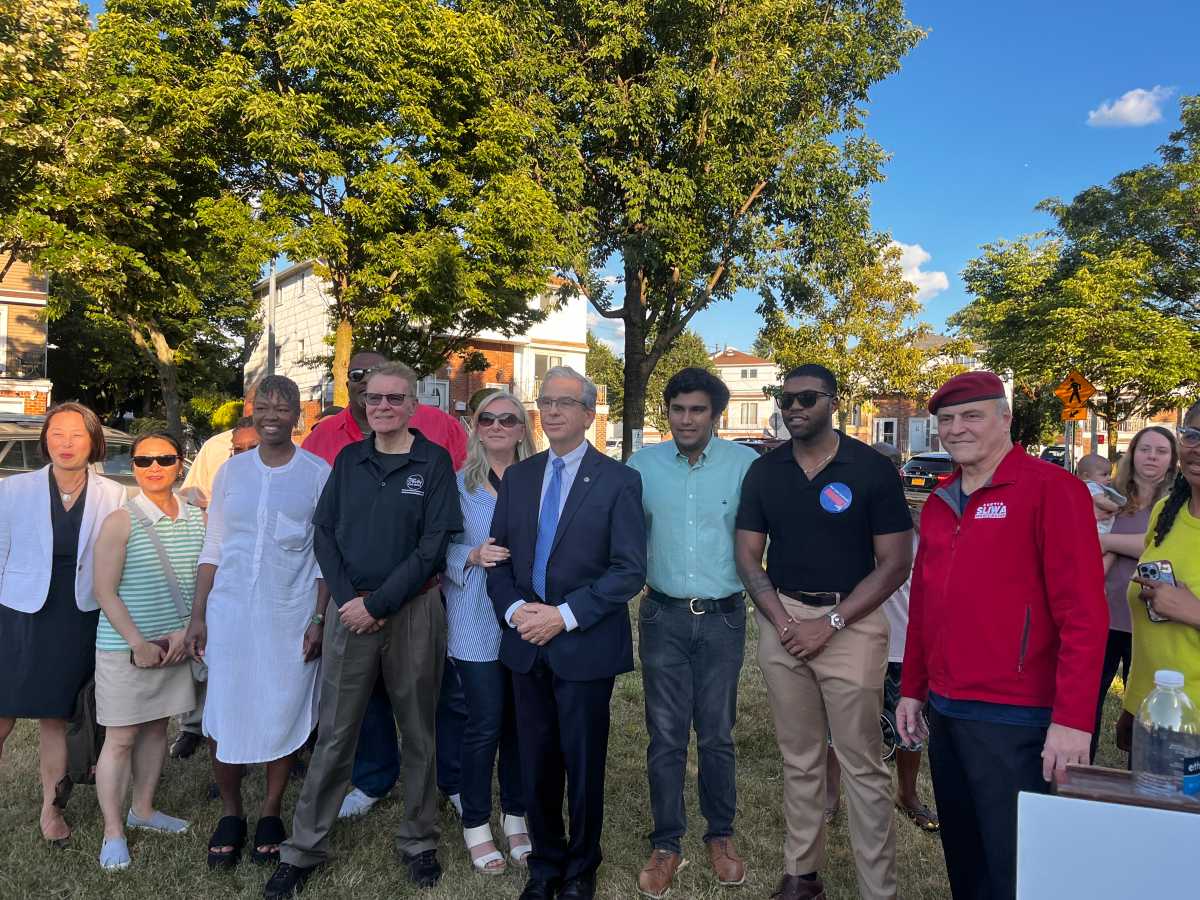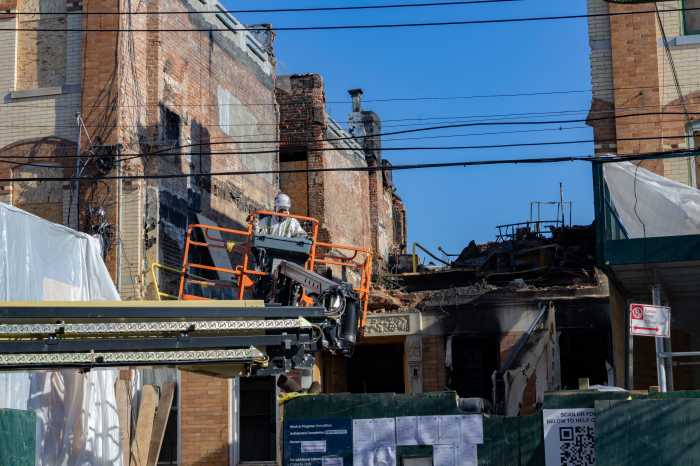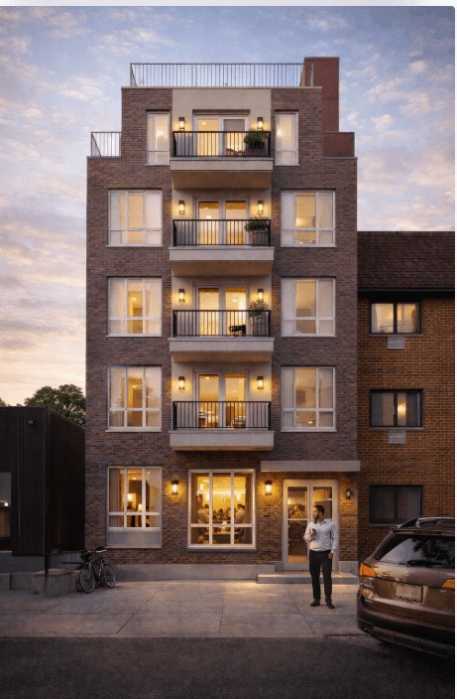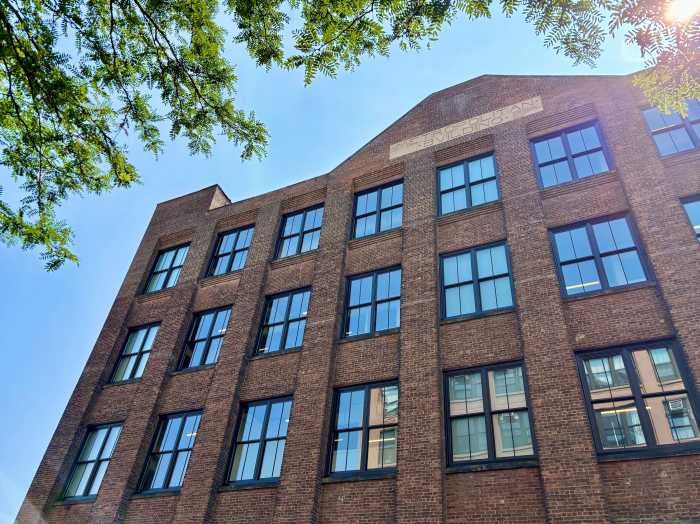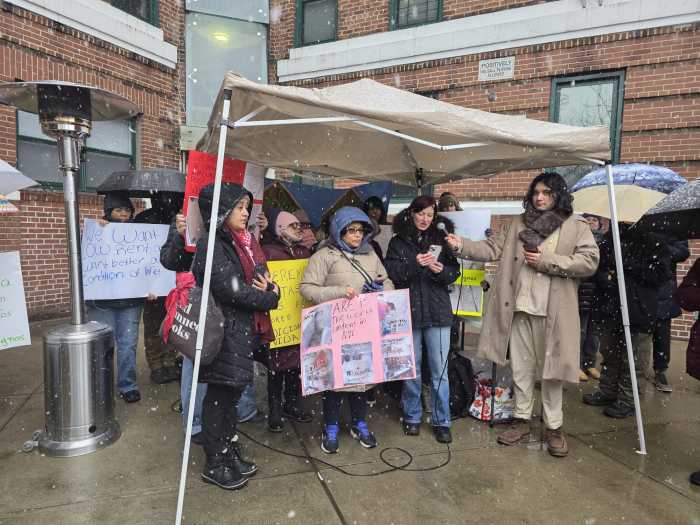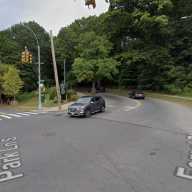The ‘City of Yes,’ a vast rezoning plan that aims to add housing to every neighborhood throughout the city, is a giant ‘No,’ according to a handful of Queens Republican candidates vying for elected office.
Four Queens Republicans, along with likely mayoral candidate Curtis Sliwa, held a press briefing in Rosedale on Monday to denounce Mayor Eric Adams’ City Of Yes housing rezoning proposal. The candidates argue that if passed, the proposal would make residential communities in southeast Queens and across the borough unrecognizable.
The four candidates and Sliwa presented a united front. They were critical of the mayor’s handling of the current housing crisis and pointed out their issues with the City of Yes for Housing Opportunity rezoning proposal.
The candidates included Republicans seeking office at both the federal and state level, including Paul King, who is running for Congress in District 5; Yiatin Chu, who aims to represent the 11th Senate District; Michael O’Reilly, who is running to represent Senate District 10, and Dwayne Moore, who seeks to represent Assembly District 29.
O’Reilly said the plan, which calls for adding housing in neighborhoods throughout Queens, would result in an influx of people moving to the area, putting pressure on the infrastructure. He also noted that it ignores regulations that have long protected people from living in substandard conditions.
For instance, the proposal would legalize Accessory Dwelling Units across the five boroughs, making way for backyard cottages, garage conversions, and basement apartments in one—and two-family homes.
The proposal, he said, involves “cramming living quarters into every shed, every garage, every attic above every storefront, just so that we can accommodate more people than we can handle,” he said. “ Let’s throw the City of Yes out the window.”
Moore, meanwhile, told attendees that the proposal would change the makeup of neighborhoods such as Rosedale, which has long been the domain of one and two-family housing—since it would lead to the construction of high-density dwelling units. He added that residents have asked the city consistently for help with other problems, including re-paving roadways, flooding issues, and better schools, but have now been greeted with a plan that “nobody asked for.”
“Who would want our neighborhood to be more congested? If a house across the street was to get knocked down, they’d be able to build a 16-unit apartment,” he said. “With no studies done to improve the schools for the upgraded density that we’ll be having, there’s no plan to improve the sewage…but yet they’re trying to cram this down our throat…Why?”
Moore also asserted that Community Boards have voted against the proposal and called the plan “anti-American.”
“It’s an attack on our community.”
O’Reilly said the plan is the result of the city’s mismanagement. He also noted that it makes no sense for the city to welcome immigrants in large numbers when there is a shortage of housing.
“This whole City of Yes notion came about when Mayor Adams realized that we have a housing shortage. On the other hand, he entices tens of thousands of people [immigrants] to come up and make our community their new home.”
In addition to increased density, O’Reilly also shared concerns about parking, since the proposal would no longer require parking spaces for new housing developments.

Chu also touched on the importance of protecting low-density housing and the concept of the American Dream. She shared how important it is for Queens residents to own homes away from the hustle and bustle of Manhattan.
She also noted that Queens residents require parking spaces to travel to the LIRR and other transportation hubs. Additionally, she was critical of the plan to allow Accessory Dwelling Units.
“Legalizing them will be a free for all. Expect dangerous ADUs to proliferate,” she said. “To support multi-unit apartment buildings…we need major investments in sewer lines, electrical capacity, road work, schools, and more. The Mayor’s City of Yes, like Governor Hochul’s Housing Compact last year, aims to take away our right to decide what’s good for our communities.”
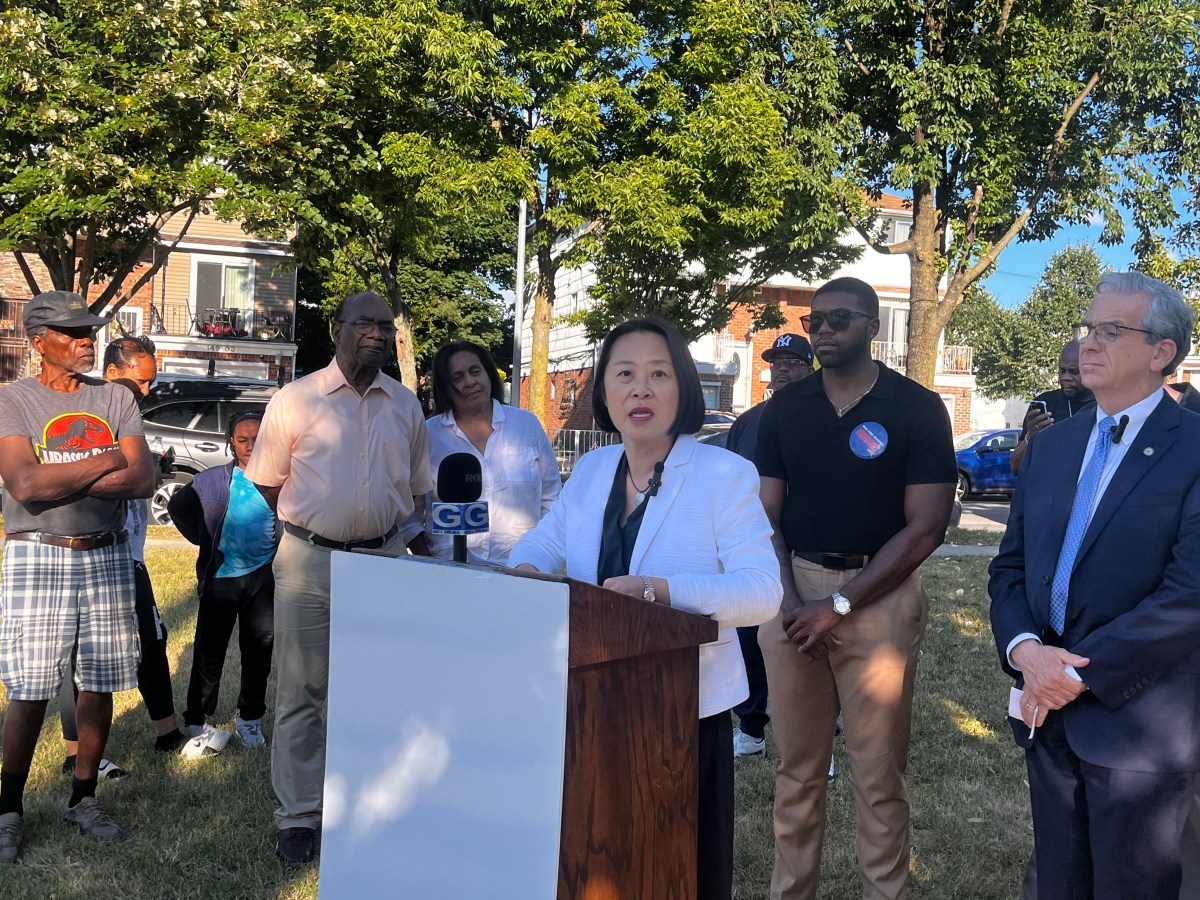
Meanwhile, King, a member of Queens Community Board 14, said that Board 14 overwhelmingly rejected the rezoning policy and also said that it undermined the American Dream of homeownership. “Over decades, sometimes over generations, you keep improving your lot in life. Maybe you get into a better apartment building, multi-family house, and ultimately you might go into a one or two family home in a great neighborhood like [Rosedale],” he said.
King called the City of Yes Housing Opportunity proposal “ dystopian,” arguing that it would break Brooklyn and Queens communities down into little “cities that are overcrowded… It’ll be the ruination of New York City.”
“Now, the Department of City Planning says that’s not gonna happen. It’s only a little more housing in every neighborhood. It’s not that big a deal. Well, reality paints a different picture,” he said.
King shared that his ‘reality’ came in the form of increased calls from developers asking to buy his home. He stated in just this past year, he’s received 10 letters, packets and proposals, which is a stark difference from the one to two calls he’s received over the past decade.
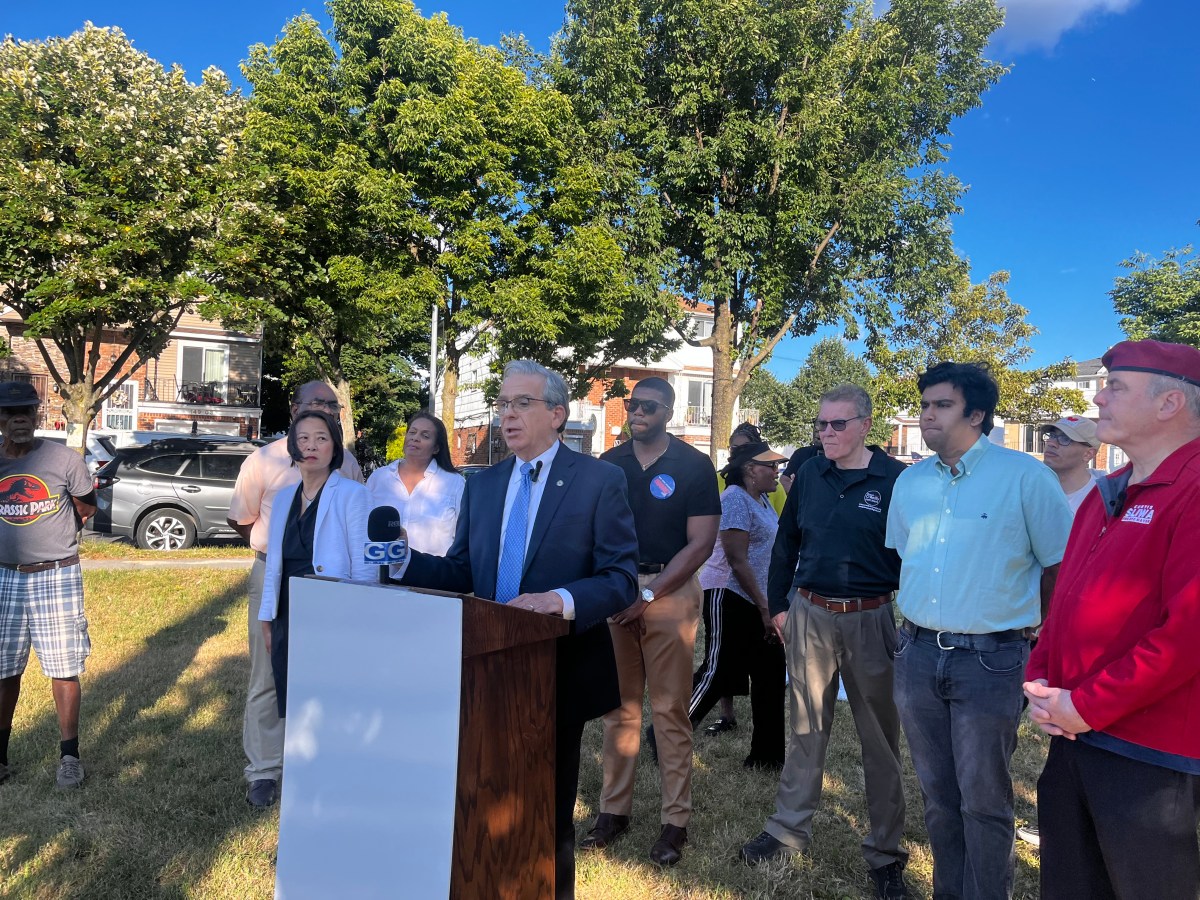
“What’s changed? It’s the City of Yes. The developers know when this comes down, if it gets passed, it’s going to be the Wild West. They could scoop up a property like mine, knock down my 100-year-old two-family house, and put up, you know, 8, 9, 12 units in that same space, which will ruin the quality of life for the neighbors,” he said.
Following the candidates’ remarks, Sliwa took to the podium to slam the rezoning policy. “Manhattan is Manhattan. We don’t need Manhattan in the Bronx. We don’t need Manhattan in Queens, in Brooklyn, or in Staten Island,” he said.
Sliwa also had choice words for Mayor Adams, saying that he and his “ cronies in City Hall” are being aided and abetted by realtors who don’t care about the outer boroughs. “They think of the outer boroughs as a place where they can put up high-rise apartments and, like in third world countries, have ground floor retail, second floor retail, third floor retail… That’s crazy! They will destroy the residential nature of our city,” he said.
Sliwa’s parting words included a call to action about the rezoning policy. “The war is on, the battle is on. We keep the bulldozers out; we keep the developers out. If they want to go to the Hamptons and develop where they wine, dine, and pocket-line our politicians, so be it,” he said.
